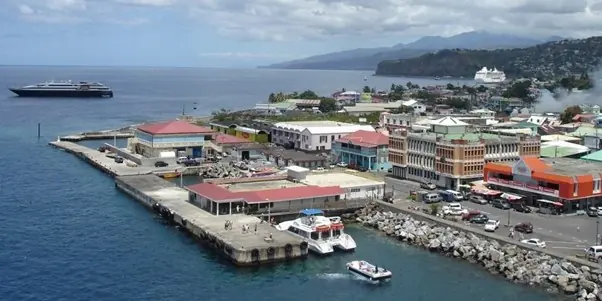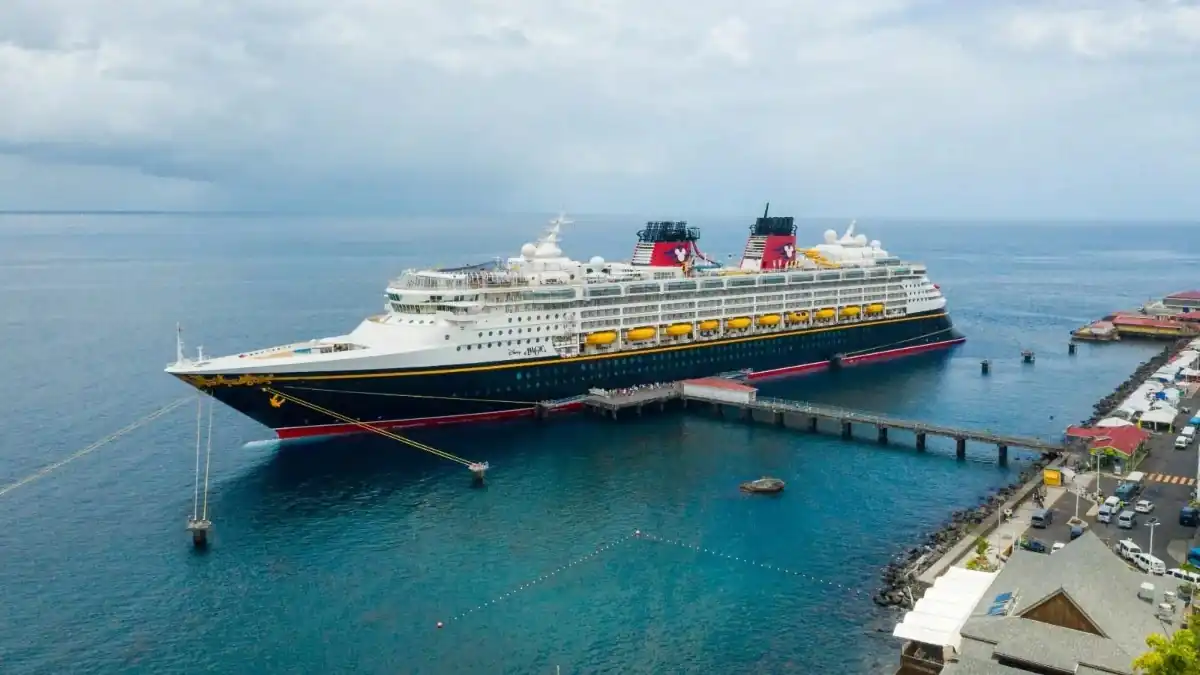Dominica announces Sperm Whale Reserve as part of ‘Blue Economy’ initiative
Dominica becomes the first nation in the world to set up a Sperm Whale Reserve, paving the road to conservation and sustainability for the world.
15th of November 2023

The Government of Dominica has taken a mammoth step towards its goal to build a ‘Blue Economy’ by introducing the world’s first Sperm Whale Reserve, as a part of the nation’s Sperm Whale Project.
The announcement was made on the 13th of November, in the presence of the project’s partners from National Geographic, who have played a significant role in helping the Caribbean nation achieve this milestone.
In the process of becoming the first nation to create a marine protected area for one of the world’s largest animals, Dominica is designating 800 square kms on the western face of the island as a sperm whale reserve. The area is already used by 50 sperm whale families, becoming home to roughly 200 whales in total.
Since sperm whales have managed to live in harmony with people in Dominica, citizens of the nation are quite pleased with the initiative, which will also help the Caribbean nation meet its climate resilience goals.
Prime Minister Roosevelt Skerrit has been quite vocal about his support for the project, stating that, “We want to ensure these majestic and highly intelligent animals are safe from harm and continue keeping our waters and our climate healthy.”
The Dominica Sperm Whale Project’s founder, Shane Gero, who is a whale biologist himself, explained why it is important to preserve the sperm whale population to combat climate change. He stated that sperm whales defecate at the surface as they cease non-vital bodily functions when they dive.
Their excrement is rich in nutrients and acts as fertilizer for plankton, helping them bloom. This plankton growth has the ability to capture carbon dioxide quite efficiently. Upon dying, these plankton blooms sink to the bottom of the ocean, taking the carbon they capture with them.
According to estimates given during the announcement of the reserve recently, Dominica’s sperm whale population has the ability to mitigate carbon emissions released by 5000-6000 vehicles.
Sperm Whales are famous for feasting on giant squids and apparently get to eat almost twice as much when they are in and around Dominica. This is assumed to be one of the reasons as to why they defecate in larger amounts in Dominica’s waters.
Hence, this initiative is an important step in Dominica’s work towards becoming an environmentally responsible, climate resilient nation which does its part in combating climate change.
“In some respects, sperm whales are fighting climate change on our behalf.” Gero stated in an interview.
The sperm whale population that Dominica is attempting to protect, moves along the Lesser Antilles chain, swimming as far south as St. Vincent and north into Guadeloupe, apart from the time that it spends in Dominica.
Gero noted that the loss of one calf could bring an end to an entire sperm whale family as males tend to switch oceans at some point in their life cycle and female calves are fewer in number.
Luckily, unlike most sperm whale populations around the world, the ones living in the eastern Caribbean do not travel extensively and are easier to track and protect.
Considering the fact that sperm whales produce one calf every 5-7 years, it is important to make sure the population is allowed to expand.
While sperm whales do not have any natural predators to worry about, their population has been dropping consistently over the past 20 years. Some of the reasons behind this decline are ship strikes, which occur when whales cross into shipping lanes, chemical pollution which affects marine habitats in quite a drastic manner and the consumption of plastic.
Getting entangled in fishing gear has also caused some deaths, becoming another significant issue.
As a result of these observations, the government of Dominica has come to the conclusion that the reserve will not just protect sperm whales but also allow citizens to engage in sustainable fishing. Another effect of this move is that Dominica will now have the ability to open an international shipping lane which will avoid the sperm whales categorically, protecting them from possible collisions.
This reserve also enables tourists to interact with and even swim with sperm whales almost throughout the year. Such opportunities are few and far between in other parts of the world.
According to the Minister of Agriculture and Fisheries, Roland Royer, the reserve has the capacity to make enough money to pay for itself, cementing it as a long term and financially sustainable project.
The Prime Minister stated that the reserve will have an officer and observers on duty to make sure that the area is secure and whale tourism regulations are followed strictly.
Enric Sala, a scientist and conservationist, who represented National Geographic, was quite pleased with the effort being made. He expressed his views in a statement, “The government of Dominica has realized that the sperm whales, which were probably here before humans, are also citizens of Dominica. These whales will spend most of the year offshore the island. So, they are taking care of some of their citizens in a way that few nations have ever done before.”
Sperm whales are also famous for communicating amongst each other by making a clicking sound. While diving with whales, the sound is quite an experience and can be heard quite loudly and clearly even underwater.
Dominica is the ideal habitat for these majestic animals as it provides them with more food than any other region they frequent and also offers them protection for their offsprings.
An interesting fact about sperm whales is that they have the shortest sleep cycle amongst mammals, usually sleeping for 15 mins and doing so vertically.
One of the greatest advantages for sperm whales who will be living in the reserve is the freedom they will be afforded. The whales are absolutely free to move in and out of the reserve at will and can travel to other regions whenever they please, although they are accustomed to living in Dominica’s waters for extended periods of time.
Since sperm whale families often prefer to live in or return to very specific areas, the reserve has been designed to encompass the regions that sperm whales are known to frequent or reside in.
Latest
- Trinidad and Tobago Imposes New State of Emergency Amid Rising Gang Violence
-
PM Roosevelt Skerrit responds as massive fire damages businesses on George IV Street in Roseau -
Antigua and Barbuda to welcome over 113,500 Cruise passengers in March 2026 -
Antigua and Barbuda by-election: ABLP’s Randy Baltimore begins door-to-door campaign -
Nevis sees surge in cruise arrivals as 2025-26 season continues
Related Articles

16th of December 2024

11th of December 2024

2nd of December 2024


7th of December 2024

7th of December 2024


25th of November 2024
